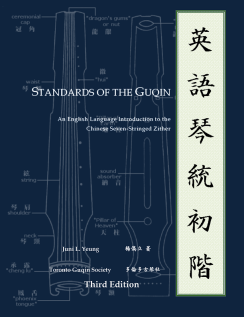
The burning of the Hanfu skirt on Chongyang Day, 2010 in Chengdu.
Please pardon the recent lack of updates. Aside from attending to family affairs in a visit back to Hong Kong last month, I admit I have recently become engrossed in yet another online game (even scholars…especially scholars, procrastinate). I will try to give a few recent anecdotes personal and in the greater Hanfu circle.
Without a doubt, the largest Hanfu related piece of news (and news in the time of our mass media usually is negative) is the Chongyang Day (Oct 16 2010) Chengdu Hanfu Burning Incident. It has been over a month since the affair, and as I watched the aftermath unfold (and the several people taking the lead in the actual burning were arrested for public disorder), it is perhaps time to write a summary on my and general society’s reflection of the giant rift of Chinese society – it is not just about political standpoints, education and income levels, age, gender and orientation, or any previously known one description or strata, but as individuals which comprise of any combination of such.
Before carrying on to the reviews, let us revise the happenings of October 16, 2010:
A Chengdu girl (alias Sun Ting) who was newly introduced to Hanfu from a friend tried on a borrowed set of short Quju top and skirt, and went out to the movies in town on the afternoon of the 16th, only to find the place much too crowded. They changed plans dine at a Dico’s restaurant nearby on Chunxi Road, to which they sat by the taller tables and stools by the second floor shopfront window. At that time, a wave of “patriotic” protesters passed by, encouraging fellow citizens to boycott Japanese goods and the government to enforce sovereignty over the Diaoyu Islands (known as Senkaku Islands to the Japanese). A group of “university students” (later identified as a group of unemployed late-teens not affiliated in any tertiary institutions) noticed the crossed-collars of her clothing, unsure of its cultural background. People suggested going into the shop and checking her back to see if there was “a pillow” on it (the primary feature of the obi waistsash on a Japanese furisode), but rumours escalated quickly and spun out of control, and the message soon directed towards the violent end.
The crowd surrounded the shop’s exits, demanded that she strip her “kimono” away to satisfy the public. Sun, despite being a newcomer to Hanfu, tried her best to explain that this was Chinese clothing, not Japanese. However, the protesters were unreceptive to reason, and forced her to surrender her top, which was taken away. Sun complied, but soon she was asked to also surrender her matching skirt. Having no other clothes underneath save undergarments and a T-shirt, she hid away in the Women’s washroom afterwards, as the crowd set fire to the skirt right outside the shop, under the witness of tens of cameras and cellphone captures. A man who bought a pair of jeans for his girlfriend graciously gave Sun his purchased goods, allowing Sun to leave with the least bit of humanly dignity.
Netizens (including Hanfu group members) devoted themselves to searching up the perpetrators to the crime, refusing to believe they were really “university students” (although considerable bashing was given to the overall general quality of them), and later labelled them as “general ignorant thugs”, “remenants of Manchurian poison”, and even “intentional undercover Manchu separatists, trying to take advantage of ignorant patriotism direct against the Hanist movement”. Shortly after the incident, the Hong Kong Hanfu group set up on the Chinese version of Wikipedia a complete article on the incident, and within two weeks it became an international laughingstock on both official channels of news media to the most informal and bawdy parts of the blogosphere.
Since I was in Hong Kong at the time of the happening of this incident, let’s take a look at some of the responses from there. Just as I was having trouble with my formal paper on the Hanfu movement and actual events displaying the stigma against it, this event has “artfully and timely” appeared in its most bare, despicable form. I cannot help but muse at the irony of the matter, and can conclude with the axiom “be careful of what you wish for”.
First they mock you, then they fight you, then they accept the truth as self-evident.
-Mahatma Gandhi More








Recent Comments